#2018 CHINA ADAPTATION
Explore tagged Tumblr posts
Text










MADE IN CHINA
DYLAN WANG
SHEN YUE
#MADE IN CHINA#METEOR GARDEN#CHINESE VERSION#DYLAN WANG (DAOMING SI)#SHEN YUE (DONG SHANCAI)#2018 CHINA ADAPTATION#From My NON BL WATCHLIST BLOG#My GIFS#MYGIFSET#MY-GIF-EDIT#BL-BAM-BEYOND FAMILY OF BLOGS
14 notes
·
View notes
Text
Censored Chinese BLs I love for people who don't know what they are or want to find more.
Censored Chinese dramas refer to Chinese dramas that are based on gay source material and are adapted to screen, but due to strict restrictions in China, they must redact most of the gay interactions. Even so, Chinese productions work on a little budget and use workarounds to make the romance as clear as possible without getting taken off air. Some fail, some succeed. All of them make it pretty clear to viewers, though, that these characters are in love.
Also, for non Cdrama watchers, most Cdramas are LONG. I'm talking 30-45 minute episodes for 30 episodes on average, so if you want to start one get ready for an investment. There are shorter ones, but honestly, I think it's worth the investment.
Continue on for examples and recs.
The Untamed (2019)- The big boy. If anyone tells you they watch Chinese bromance, this one was likely their first. It is the most popular among these. It's on Netflix.

Word of Honor (2021) - Another popular one and this one got some of the most in your face gay shenanigans on screen. Also, one of their workarounds was having the actors mouth much gayer lines and dub it over (All Chinese audio is dubbed over in dramas). Maybe they just were at a good time period, maybe because the actors were so popular, maybe the censors were asleep, but we love her. Also, on Netflix.

Guardian (2018)- Another more popular one kinda makes a trifecta with the other two. This one got away with some good moments. I can only now find it on YouTube, but the audio sometimes gets cut off.

Killer and Healer (2021)- This one is a lot less popular than the first three. They got away with quite a bit but got even more cut out, but this one has its deleted scenes available to view online! Available on Viki and Youtube.

Winter Begonia (2020)- This one got a little bigger because of how artistic it is. It had a beautiful setting and costuming. They have a bit of a slow burn, but they definitely have their moments. Available on Viki.

S.C.I. Mystery (2018)- A household name purely because they got away with so much. Including a kiss disguised as CPR, sleeping in the same bed, etc. The budget is TINY, though, so if you can't handle everything looking like a set and poor graphics, this might not be for you. On Youtube.

Justice in the Dark (2023)- Not yet completed and has been on the back burner for a couple of years, but she's back baby, now airing in Japan. Pretty heavy on the gay, thus why they didn't pass censors after episode 8. I have no idea where to watch it. Fans are working on subbing.

Spirealm (2024)- Also one of the dramas that nearly didn't make it. Got put up, taken down, put back up on a different site. But she exists, and it is one of the gayest dramas on this list. I would say it beats out what Word of Honor got away with. On Viki.

Sleuth of the Ming Dynasty (2020)- This drama feels gay most of the time, straight for a short period of time, but they had nice moments, and they had a higher budget, directed by Jackie Chan, so you know the fighting is good. On Viki.

Advance Bravely (2017)- Started reading the book, but I have only seen clips of the show. It looks like it has potential in that older show, cheesy way, but they certainly got away with a lot because they were earlier in the timeline. On Viki and IQiyi.

Stand by Me (2023)- Haven't finished this one yet, but it is up there in chemistry. It was really hard to find, but it is on WeTV. No gifs unfortunately.

Honorable Mentions
Addicted (2016)- A canonically gay drama, the only canon gay drama to be made and released in China pre-ban. It is toxic, I warn you. It was made in 2016, prime toxic BL time. We must honor those who came before, though. It was canceled halfway through. Available on YouTube and Viki.

Meet You at the Blossom (2024)- Another canon BL, this one picked up in Thailand. The actors are Chinese, the language, and the backdrop. Everything behind the scenes is thai. It is also toxic, but less than Addicted, another win for Chinese BL, opening up possibilities.

The rest will not be based on gay source material but feel at the same level as the others on the list.
Mysterious Lotus Casebook (2023) - I feel that the new Chinese tactic to convey gay subtext and cover it up is to make everyone act equally romantic toward everyone, which in turn is creating polycules, which is lovely for me. This drama is no exception. Available on IQiyi.

Fangs of Fortune (2024) - A much larger and more complicated polycule complete with lesbians and straights. Available on IQiyi.


Silent Criminal (2020) - This one felt like it was supposed to be gay, and they tried to shove a female lead between them to diffuse the tension. Available on Viki and IQiyi.

Wuliang (2020) - I gotta be honest, when I first saw this movie, I didn't get the hype, but after some time I really appreciate the visuals and themes that have stuck with me, I think it was just too short. Unavailable legally without a vpn.

Yin Yang Master (2020) - This movie was very much an enemies to lovers sub plot with a fantastical main plot that looks beautiful. Available on Netflix.

Any Lost Tomb Adaptation (2015-2025) - The ships in this franchise span books, movies, shows, comics, etc. They are visible in any adaptation, so feel free to explore.

A League of Nobleman (2023) - This one is also a nice polycule opportunity. It feels lighter than some of the others on the list, but still very much a bromance. Available on Viki.

Under the Skin (2022) - This one makes me more unsure whether it was intended to even be a bromance at all, but by the second season they definitely blossomed into something beautiful and they are backdropped by some amazing and unique plots and cases. There are also some sweet shipping possibilities within, but I don't want to spoil. Available on Viki.

My Roommate is a Detective (2020) - Now this one was definitely meant to be a bromance, but also a straight romance. Unfortunately, the female lead drove me absolutely up the wall, then when they had another chance with the same two leads and director to do another drama called Checkmate, it was boring, so... start at your own peril and be warned, I am no women hater, she is just... you'll see.

I know of more, but these are the only ones I have at least seen enough to suggest (or not) to other people. I thought all this time spent on this media might as well be used somehow. Hopefully this helps you find a new drama or a new type of drama or dramas in general. Happy watching!
#chinese bl#chinese bromance#the untamed#word of honor#guardian cdrama#winter begonia#killer and healer#s.c.i. mystery#justice in the dark#the spirealm#the sleuth of ming dynasty#advance bravely#stand by me 2023#addicted 2016#meet you at the blossom#mysterious lotus casebook#fangs of fortune#silent criminal#wuliang#yin yang master: DOE#lost tomb#a league of nobleman#under the skin 2022#my roommate is a detective#drama recommendations
211 notes
·
View notes
Note
Your post about amphibian adaptations was really cool! I'd never heard of that newt before! Love learning about new animals!
Here's another few more species for you in that same genus...
(As a reference, Vixen is talking about the Red-tailed Knobby Newt aka Kweichow Crocodile Newt (Tylototriton kweichowensis), which, along with the other species in this genus, has a unique defense strategy...)


Tiannan Crocodile Newt (Tylototriton yangi), family Salamandridae, endemic to southern Yunnan, China
Poisonous.
Some species within this genus are capable of poking the tips of their ribs through the orange bumps on the back, which secrete poison. The ribs can effectively become venomous spines that can puncture the potential predator’s skin!
photograph by ZTH Photography & Zhou Hang

Ngoc Linh Crocodile Newt (Tylototriton ngoclinhensis), family Salamandridae, endemic to the central highlands of Viet Nam
Poisonous.
First discovered in 2018, finally described as a distinct species in 2023.
photograph by Tao Thien Nguyen


Himalayan Crocodile Newt (Tylototriton verrucosus), family Salamandridae, found in parts of South and SE Asia
Poisonous.
photograph by John P. Clare
245 notes
·
View notes
Text

Ask, and ye shall receive. Posting the Nie Huaisang Essay for his birthday, I hope the three Nie Huaisang Enjoyers will like this♡
Nie Huaisang, GNC Icon?
An analysis of the construction of Chinese masculinity and manhood as it relates to perceived gender-nonconformity in Chinese male characters in period dramas by western fans.
「你小心点!这个呢可是我最喜欢的一副��子。你看 画工精巧构图別致。怎么样 是不是当世极品哪?」
“Be careful! This is my favorite folding fan. Look, it’s exquisitely painted and uniquely constructed. How is it? It’s of the highest grade, isn’t it?”
― Nie Huaisang, episode 35 of 陈情令 The Untamed (2020)
It was late 2019 when I first heard about Chen Qing Ling, in countries outside of China and other majority-Chinese speaking areas better known as The Untamed.[1] I had, at the time, not watched a proper C-drama in years. Intrigued by CQL’s sudden popularity, however, I decided to check it out; after all, it was not every day that a C-drama gains popularity in the west. Even with the recent uptick in East-Asian media gaining traction[2], it was still a surprise to see a xianxia series getting the same level of adoration in online circles I had previously only seen dedicated to Disney intellectual property.
Based on the web-novel Mo Dao Zu Shi (Founder of Demonic Cultivation) by MXTX, CQL tells the story of Wei Ying, courtesy name Wuxian, and details the events in the cultivation world surrounding his teenage years until his untimely death several years later, and the mystery surrounding his resurrection yet 13 years afterwards. A series spanning roughly 20 years in 50 episodes, CQL is an epic that at the same time leaves out a lot of the original novel. After all, it is an adaptation of a danmei-genre novel: focusing on male-male romance generally created by and for women and sexual minorities (Lavin et al 2017). Considering the strict media regulations in China, most of the homoeroticism either had to be censored or subtextual (Xu 2014; Shaw and Zhang 2018).
With this popularity, however, also came the very western-centric, colonialist, and orientalist interpretations of the text. Focusing in particular on the way that Asian men have been and are seen as more feminine (Han 2016; Han 2006; Song 2004) and how western fans continue to perpetuate this rhetoric when consuming C-dramas, I will take as a case study the way that Nie Huaisang, one of the main supporting characters in CQL, has been hailed as a gender-nonconforming, nonbinary, and/or trans icon by western fans. Starting with expounding on the danmei genre as a whole, and what that means for Nie Huaisang as a character, I shall then discuss the ways that Chinese masculinities are constructed and how Nie Huaisang exemplifies the wen ideal of masculinity, being a scholar and an artist. Finally, I will talk about western fans’ attitudes being culturally insensitive on top of reiterating and reinforcing western-centric, colonialist, and orientalist tropes and ideals surrounding masculinity and manhood.
Danmei, derived from the Japanese term tanbi and the Chinese equivalent to BL (Boys’ Love), although by now it has transformed into its own subculture instead of wholly resembling its Japanese counterpart, literally means “addicted to beauty” (Feng 2009; Lavin et al 2017; Kam 2012). It depicts an idealized love between (young) male characters, who also embody ideal, generally androgynous, beauty standards, and whose beauty is at the forefront of the text. These beauty standards extend even to the side characters, and in drama adaptations the casts tend to boast idols and young, conventionally attractive actors in all roles ― as is the case with CQL.
What this means for Nie Huaisang, who is neither a love interest nor a main character, is that he would still have to fall into the trope of being a beautiful man, and have it be natural within the narrative. Chinese beauty standards here differ from the eurocentric and oftentimes colonialist norm that western fans are used to. Furthermore, culturally and historically the androgynous looks that are romanticized and exalted are constructed within the framework of masculinity; in other words, while for westerners androgyny might mean gender-nonconformity, nothing could be farther from the truth when looking at how Chinese masculinity and manhood are constructed (Kam 2012).
Beyond aestheticism, however, which is more of a danmei staple (Feng 2009), there are many other ways in which masculinity and manhood were conceptualized in ancient China. Nie Huaisang, being a scholar, embodies a very distinct masculine ideal (Kam 2002; Kam 2015; Song 2004). The scholar class was a male-only, and, indeed, one of the most venerated of professions held in ancient China. Nie Huaisang, being a sect heir and later sect leader, furthermore was well-off, meaning that he couldn’t be in a “feminine” scholarly position either ― marginalized/poor scholars were emasculated by being in the service of higher-ranking men, think of pinshi (poor scholars), muyou (secretary scholars), or hanshi (obscure scholars), which could never be the case for Nie Huaisang (Kam 2016). Within the framework of Chinese masculinity, and specifically the wen-wu (literary-martial) understanding and conceptualization of it, scholars were further preferred over their martial counterparts; Nie Huaisang, by virtue of being a scholar and a beauty, even lives up to the romanticized masculine ideal of the caizi jiaren[3] (“scholar-beauty”) hero (Song 2004). While being a well-rounded individual was of course appreciated more[4], as a poet, artist, and shrewd intellectual Nie Huaisang more than conforms to male gender roles as they exist within the cultural and historical context (Kam 2002; Kam 2015).
「大哥这人你也了解 一向鲁莽 又容易冲动。可你不像他。你自小理性内敛、又习得奇门道用。」
“You know eldest brother[5] well. He’s always been reckless and impulsive. But you are not like him. You have been rational and restrained since you were young, and you are good at Daoist magic.”
― Jin Guangyao to Nie Huaisang, 乱魄 Fatal Journey (2020)
In Fatal Journey, which is a spin-off movie of CQL focusing solely on the Nie sect, Jin Guangyao tells Nie Huaisang the above. Nie Mingjue is in the series and movie both depicted as a strong fighter; juxtaposing both brothers, one who is good at martial pursuits and one who follows intellectual pursuits, it becomes clear that here, too, “rationality” and therefore being an intellectual is preferred over the brute strength in cishetero-patriarchal hypermasculinity that the west favors, while simultaneously marking both brothers as still conforming to masculine standards.
The fact that western fans interpret Nie Huaisang to be “GNC-coded”, then, has to do with their own preconceptions surrounding how western (white, eurocentric) masculinity and manhood are constructed, and taken as the norm for these concepts. Because of orientalism, East Asian men as a whole are feminized, emasculated, and infantilized (Han 2016; Han 2006; Kam 2012; Kapac 1998). Western fans consuming and interacting with East Asian media will be done through such a lens, and when uncontested, only perpetuate this rhetoric. In period dramas such as CQL, where everyone wears flowing robes and has long hair[6] ― historically and culturally accurate ― western audiences will instead interpret this to mean their conceptions of Chinese people to be more feminine aren’t unfounded. While the construction of Chinese masculinities have changed since ancient times (Kam 2015; Song 2010), and the representations of Chinese masculinities in TV have become more globalized (Song 2010), it nevertheless does not mean that male characters in period dramas are ever seen as feminine or deliberately emasculated through being a scholar as opposed to a warrior ― that is a purely western interpretation.
Nie Huaisang’s mannerisms, while seemingly “feminine” by western standards ― his love for fans, his artistry, his intellect, his aversion to violence ― all have cultural, contextual, historical, and in-universe explanations that have nothing to do with his manhood nor his masculinity[7]; he was written as a frivolous “second young master” with no ambition to take on the role as sect leader[8], and his sect’s cultivation style actively poisoned the mind and body. Is it any wonder, then, that he did not take up the dao? While he doesn’t conform to the cultivation world’s standards of a cultivator and later as sect leader, a role he was forced into after his brother’s death, this does not make him gender-nonconforming. Western audiences’ preoccupation with his antipathy towards using his dao and not fighting furthermore points to their subscription to western-centric, colonialist ideals of hypermasculinity (Han 2016; Song 2004), which they assume are universal, and therefore ascribing Nie Huaisang traits that simply aren’t there. In the end, his wielding of a fan and brush instead of a dao is then interpreted as him being effeminate and not conforming to gender roles, instead of understanding that as a scholar and artist, he conforms to gender roles just fine, but does not conform to traditional cultivator roles.
In a rapidly globalizing world where it is increasingly easy to gain access to media made elsewhere, western audiences’ inability to understand that their worldview is limited actively perpetuates orientalist tropes and racist misconceptions. The way that Nie Huaisang is seen as gender-nonconforming by fans points to the racialization of gender and its construction. A scholar and an intellectual, wielding a fan and being an expert strategist, Nie Huaisang is at times reminiscent of Zhuge Liang, a legendary historical scholar. Yet, while he conforms to male gender roles within his own cultural context, being emblematic of the wen ideal of masculinity, western audiences cannot conceive of him as a man because he deviates from white cisheteronormative patriarchy.
This is not to say that interpreting any character as a minority should not be done. Representation is important ― we all know this. Personally, I would even welcome it as a gender-nonconforming nonbinary person myself. The way western fans go about it, however, only shows they do so through a western-centric, colonialist, and orientalist lens. The point, then, is not that he cannot be gender-nonconforming ― it is to change how western audiences interact with and interpret non-western media.
FOOTNOTES
I will henceforth refer to the series as CQL.
Think for example of how K-pop is becoming more and more mainstream by the day, and how anime and manga are as much part of pop culture as comics and cartoons.
A type of novel depicting the story of a young, rich, beautiful scholar and his female love interest.
Take, for example, Liu Bei, Guan Yu, and Zhuge Liang from Romance of the Three Kingdoms; while all three are undoubtedly held up as paragons of masculinity and male role models even now, Guan Yu, being a martial god (thus epitomizing wu), and Zhuge Liang, being an unparalleled intellectual (thus epitomizing wen), both defer to Liu Bei, who embodies both parts of the wen-wu dichotomy equally, being an adept swordsman and an able strategizer.
This refers to Nie Mingjue, Nie Huaisang’s eldest brother and also Jin Guangyao’s eldest sworn brother. He was at the time the sect leader of Qinghe (where the Nie clan was based).
Long hair has long been a confucian ideal, and not gendered because of it. As one’s body is granted to them by their parents, and one has to pay respect to their elders, cutting hair is akin to desecrating the body and disrespecting one’s elders.
Beyond being explicitly stated in the text multiple times, the official artbook of the drama also reinforces this, as does Nie Huaisang’s propensity to quote poetry or waxing lyrical. One memorable line at the end of the series especially brings this home: 「这山川风物四时美景 真是无论看多久 都不会 觉得厌。我呢 是一个识趣的人 该我做的我不会假手他人 如果不该我做的 我也做不来。」(“These mountains and rivers, the scenery of all seasons – I really do feel that no matter how long I look , I won’t become bored of them. As for me, I’m a sensible man. For the things I should do, I won’t shirk. But for things that aren’t my business, I won’t meddle in.”)
After all, we have already established he conforms to Chinese standards of masculinity, and as a Chinese male character from a mainland Chinese production that was made primarily for Chinese-speaking audiences, that is honestly all the context needed to understand him as a character.
Wei Wuxian asks Nie Huaisang if he would ever have the intention to become head cultivator (i.e. leader of all the sects), and by answering thus, invoking scenic imagery and speaking in a higher register, which, yes, is in-character for him, also has an added layer. Reminiscent of Chinese dynastic succession struggles, unambitious siblings tended to throw themselves into the arts, poetry, and music, while eschewing politics and power plays in the hopes that their siblings who had ambitions for the throne would not kill them. Nie Huaisang, here, is conjuring up these same sentiments, hinting to Wei Wuxian that he is not scheming to be head cultivator by talking poetically, and further implicitly pleading with his old friend not to suspect his motives and not to kill him because of them.
BIBLIOGRAPHY
Feng, Jin. 2009. ““Addicted to Beauty”: Consuming and Producing Web-based Chinese “Danmei” Fiction at Jinjiang.” Modern Chinese Literature and Culture 21, no. 2 (fall): 1-41. https://www.jstor.org/stable/41491008.
Han, C. Winter. 2016. “From “Little Brown Brothers” to “Queer Asian Wives”: Constructing the Asian Male Body.” In Body Aesthetics, edited by Sherri Irvin, 60-80. Oxford: Oxford University Press.
Han, Chong-suk. 2006. “Being an Oriental, I could Never Be Completely a Man: Gay Asian Men and the Intersection of Race, Gender, Sexuality, and Class.” Race, Gender & Class 13, no. 3/4 (2006): 82-97. http://www.jstor.org/stable/41675174.
Kam, Louie. 2016. Changing Chinese Masculinities: From Imperial Pillars of State to Global Real Men. Hong Kong: Hong Kong University Press.
Kam, Louie. 2015. Chinese Masculinities in a Globalizing World. New York: Routledge.
Kam, Louie. 2012. “Popular Culture and Masculinity Ideals in East Asia, with Special Reference to China.” The Journal of Asia Studies 71, no. 4 (November): 929-943. https://doi.org/10.1017/S0021911812001234.
Kam, Louie. 2002. Theorising Chinese Masculinity: Society and Gender in China. Cambridge: Cambridge University Press.
Kapac, Jack. 1998. “Culture/Community/Race: Chinese Gay Men and the Politics of Identity.” Anthropologica 40, no. 2 (1998): 169-81. https://www.jstor.org/stable/25605895.
Lavin, Maud, Ling Yang, and Jing Jamie Zhao. 2017. Boys’ Love, Cosplay, and Androgynous Idols: Queer Fan Cultures in Mainland China, Hong Kong, and Taiwan. Hong Kong: Hong Kong University Press.
Shaw, Garreth, and Xiaoling Zhang. 2018. “Cyberspace and gay rights in a digital China: Queer documentary filmmaking under state censorship.” China Information 32 (2), 270-92. https://doi.org/10.1177/0920203X17734134.
Song, Geng. 2010. “Chinese Masculinities Revisited: Male Images in Contemporary Television Drama Serials.” Modern China 36, no. 4 (2010): 404-34. https://doi.org/10.1177/0097700410368221.
Song, Geng. 2004. The Fragile Scholar: Power and Masculinity in Chinese Culture. Hong Kong: Hong Kong University Press.
Xu, Beina. 2014. “Media Censorship in China.” Council on Foreign Relations, September 25, 2014. https://www.files.ethz.ch/isn/177388/media%20censorship%20in%20china.pdf
#ling.txt#mdzs#cql#nie huaisang#meta#I GUESS. IDK WHAT TO TAG THIS LMFAO#cringe culture is dead in this house we write academic analysis posts abt our favs or whatever♡#i miss marcus bc i literally asked him to read this when i had first finished it#and he (like all real ling lautakwah née xiaoguiwang fans know) immediately clocked that i must've been in immense pain writing that#footnote abt liu b*i LMFAO like yeah i DO hate that punk ass baby-punting bitch#unfortunately culturally hes venerated as the ideal guy or whatever. fuck him tho♡#also if there are formatting issues it's bc i copy pasted it frm a fucking pdf and did it all on mobile. dont @ me it's 11pm and ive been#working allllll day long 🤧
74 notes
·
View notes
Text
The Lost Tomb 2: Wrath of the Sea (2019) - 盗墓笔记2 - Whump List

List by StayDandy Synopsis : The group of heroes are pulled into another tomb-raiding expedition that takes them beneath the sea. In an ancient Ming Dynasty ship, they encounter monstrous creatures and puzzling traps. Wu Xie opens the box that he obtained from the Seven Star Coffins of Lu Wang's Palace to discover a snake-browed copper fish. Uncle Wu San Xing recounts the strange occurrences over ten years ago when they went on an archaeological expedition to Paracel Islands. Wu Xie leads a team down to the same place to explore a sunken ship where hidden dangers await. (MDL)
Whumpee : Wu Xie played by Neo Hou (center right) • Zhang Qi Ling played by Cheng Yi (center left) • Wang Pang Zi played by Zhang Bo Yu (2nd from right)
Country : 🇨🇳 China Genres : Action, Adventure, Mystery, Supernatural, Bromance
Notes : This is a Full Whump List • Adapted from books 2, 3 and some of 4 of "The Grave Robbers' Chronicles" (Daomu Biji) by Kennedy Xu • Suggested watch order of series (not including movies & spin-offs) : -- 1. Mystic Nine (2016) -- 2. The Lost Tomb (2015) >> 3. The Lost Tomb 2: Wrath of the Sea (2019) -- 4. The Lost Tomb 2: Explore with the Note (2021) -- 5. The Lost Tomb 3: Ultimate Note (2020) -- 6. Adventure Behind the Bronze Door (2024) -- 7. Tomb of the Sea (2018) -- 8. Reunion: Sound of the Providence (2020) -- 9. Reunion: Sound of the Providence 2 (2020)
Related Lists : The Lost Tomb (2015) - Full List • The Lost Tomb 2: Explore With the Note (2021) - Full List • The Lost Tomb 3: Ultimate Note (2020) - Full List • Adventure Behind the Bronze Door (2024) - Full List
Episodes on List : 25 Total Episodes : 40
*Spoilers below*
01 : Wu Xie shocked awake, sweating, from a layered nightmare (nightmare within a nightmare within a nightmare) … Wang Pang Zi knocked out
02 : [nightmare] Wu Xie choked
05 : Unsteady … entrapped in a trance, strangled, broken out of it … Pang Zi knocked over from an explosion … Wu Xie attacked, thrown to the ground, Pang Zi thrown into a wall, Zhang Qi Ling fights; choked & lifted off the ground
06 : [flashback] Passes out
07 : Wu Xie dizzy, entranced … [flashback] head pain, pushed into water … [present] Zhang Qi Ling head pain, recalling forgotten memories … Wu Xie, Zhang Qi Ling, & Pang Zi escaping a collapsing underwater building, stuck on the way out.. Wu Xie unconscious, receives chest compressions, spits up water, knocked to the ground
08 : Recovering from fever (not really shown) … [flashback] cut his own hand
09 : Shocked awake, sweating, from nightmare
11 : (near end) Wu Xie & Pang Zi captured, tied up
12 : … continued from previous ep. ...Wu Xie still captured, tied up … imprisoned.. dehydrated, breathing hard, unsteady.. passes out.. helped to walk
17 : Pang Zi attacked, Wu Xie attacked.. attacked again, knocked out, drowning.. spitting up water … Pang Zi bit by insect
18 : Wu Xie Hit with the butt of a gun, knocked out.. wakes tied up … Pang Zi having a reaction to bug bite; unsteady, arm in hives & paralyzed, passes out … Wu Xie falls, nightmare; wakes trapped in a casket, choked
19 : Drugged, unsteady, passes out, arm nicked & blood taken
21 : Falls, knocked out briefly … Pang Zi entranced into almost killing himself … rolls down a slope
23 : Wu Xie cuts his own hand … dizzy
24 : … continued from previous ep. ... Dizzy … unsteady, holding his head … attacked, choked
26 : Blown back by an explosion, briefly knocked out … falls, hits head, blurry vision, unsteady … cuts his own hand … blown back by an explosion, drowning … wakes in hospital (comedic: with a high-pitched voice from concussion)
28 : Pang Zi's arm in a cast (tho I'm confused as to why)
30 : (near end) Wu Xie knocked out from an explosion … falls into a pit
31 : Pang Zi found unconscious
32 : Found unconscious, head sore from being knocked out
35 : Wu Xie & Pang Zi in a fight; Wu Xie coughs up blood … head pain from noise
36 : Digs out from being buried in snow, head pain.. [flashback] buried in rubble from collapsed tomb, unconscious … [present] rolls down hill, arm hurt.. exhausted, passes out.. headache, collapses … headache … drugged asleep … caught in a trap, hung upside down
37 : Headache … captured … Pang Zi captured, tied up, mouth gagged … Zhang Qi Ling head pain, drugged unconscious
38 : Drugged unconscious … Zhang Qi Ling & Pang Zi trapped in a net, both tied up & hooded
39 : (near end) Wu Xie exhausted, collapses, hypoxia (not enough oxygen), slaps himself, passes out … hallucinating
More Whump Lists for this show: love-me-a-lotta-whump
#whump#whump list#full whump list#Asian whump#China#The Lost Tomb 2 Wrath of the Sea#The Lost Tomb 2#Wrath of the Sea#盗墓笔记2#Wu Xie#Zhang Qi Ling#Wang Pang Zi#Neo Hou#Cheng Yi#Zhang Bo Yu
86 notes
·
View notes
Text
Tis 2025 & being told in my own house (yt channel) Justice In The Dark isn’t a BL because of the lack of spicy scenes when this is just how censored BL dramas are in China (eg. Guardian, SCI, Word of Honor…etc). Mind you JITD made things more romantic to get the point across without actually saying anything, and it was literally unable to air properly in China despite getting its airing licence from the NRTA and had to go overseas after 2 years because it was a censored BL like The Spirealm).
This wouldn’t matter if it didn’t happen every single time a Censored BL adaptation from China aired and I edit it. And it has been happening since 2018. 7 whole years.

#stand by for the queue#text posts#justice in the dark#modu la#modu#like idk what to say this is how China does things over there#meanwhile actual bromances can air in China just fine so how can a censored BL be one
21 notes
·
View notes
Text
on why Oner wants to send Thame to Korea alone and it make scense
With all the love and respect I have for the MARS members and Thame personally for his desire to succeed together, I see and understand where Lady Pemika's words come from and from a business standpoint she has more reasonable points than Thame. As a fan of kpop, cpop and a little bit of jpop for the last 12 years, and as someone who is just starting to explore t-pop and I'm also came from western market, I can clearly see the difference in opportunities of each market individually, domestically and internationally, and the trends they follow through the years.
China (represented by the government) will never be interested in being influenced by foreign artists. The chinese market is very isolated, artists work there 24/7 to the point of breaking bones to get to the top. Monthly comparisons of Weibo subscribers, daily flights from one city to another to sponsor events to attend them all and get into Weibo trends, increase their mentions, and at the end of the year receive an award as a Weibo prince or princess, to get more acting roles, more brand contracts etc. Chinese artists are controlled not only by their agency, but also by the government. All content (dramas 100%) is pre-filmed and reviewed by the government, otherwise they do not receive a broadcast license, so some tv shows can be released 2-3 years after filming or re-shot several times. I remember several scandals where foreign fans discovered how artists were forced to release videos where they read statement with party ideology, and also we can’t forget all the negativity and artists' removing from the industry if any of the artists accidentally says something about the territorial integrity of China or called Taiwan an independent country.
After Hallyu wave ban back in 2016, China was clearly focused on developing its own independent music idol industry, which is now in a strange state, and very differently from korean industry. There are also no big permanent idol groups - all groups created on music survival shows barely release a few songs and albums before they all go solo. It's like you probably know the name of Liu Yuxin more than THE9 or Cai Xukun than Nine Percent. I believe nobody remembers now that Lin Yanjun from cdrama Crush was his co-member back in 2018. Those groups can release albums under solo, but most often it's an acting career, because it is more stable. There are unique ones like Zhang Yixing, who can manage acting, music releases and becomes a CEO of his agency with idols all at once, but such cases can be counted on the fingers of one hand. And all idols who leave for Korea still return to China, because it's their homeland and honestly China brings them more money (ex: Victoria from f(x), Kyulkyung from Pristin, WJSN chinese members, Yixing from EXO, etc).
China doesn't want to enter the international market and doesn't want to let the international market in, because they are satisfied with themselves.
Same with Japan. It's too have a closed market, where they don't allow anyone from abroad in, with rare exceptions. It's considered a huge achievement for Koreans that my queen BoA in 2002 became the first South Korean pop star to break through in Japan following the fall of barriers that had restricted the import and export of entertainment between these two countries since the end of World War II and then with TVXQ, TWICE etc. Yes, japanese people love some kpop idols and some western songs but the main industry is not adapting to western trends, nor are artists seeking international fame or leaving their home market. Let's not forget how Japan has been in the top3 biggest music markets in the world for years and there is no influence of western artists or labels.
And there is Korea which became international: back in early 00s with Asia market thanks to BoA and TVXQ, in China with EXO in 2012, and in 2012 in USA and Europe thanks to PSY and later with BTS. And it's still expanding with 4th-5th generation idol groups. The most resent SM girl group has an indonesian girl to debut and they will become big. Every year Korean music market is expanding. They are open to debuting foreign artists in their groups, because it will bring money to the agencies from foreign fans, investors and sponsors. They have managed to popularize their language, so they don't have to adapt and teach their idols English. You need to just run autosubs on the platform or wait for bilingual fans to translate everything themselves for free. Easy.
Unfortunately this industry is insanely cruel, if you look at the number of groups debuting each year (all of them, even from small agencies, not just the top 4 biggest music labels) and how many of them get at least one release a year and how many of them survive at least 2 years of entire existence, the situation becomes sad. The competition to debut is fierce, you can see how a chinese boy Chenle from NCT debuted after ~4 months of training, while his bandmate japanese Yushi trained in the same agency for almost 9 years before finally debuting (he was accepted into SM in 2015 and debuted in 2024). And they are both insanely talented singers and dancers. Similarly, you can look at my boy Jinho, who became a trainee at SM in 2008, released a few project songs but never debuted in 7 years so he left debuted as member of Pentagon after 8 years of training in some not so big agency, although Jinho is one of the most talented vocalists in the industry.
So Lady Pemika's words about Korea only wanting Thame make sense, because Thame is talented, he has everything Korea wants: the look, the personality, THE voice, and also established popularity. It is obvious that Thame has the biggest fanbase among all the MARS members, who will loyally follow him to Korea and bring money to the korean agency. And it will profit Oner too because Thame clearly will have some kind of double contract, which actually are common with chinese idols in kpop, who have two agencies at once. Only, unlike China, the Thai music industry is several steps behind the Korean one, and still very much follows it. The terminology, the model of promotion, music shows, training systems and group creation process, sound of music - all of this in the Thai idol industry is somehow borrowed from Korea and this cannot be denied. Yes, they have adapted korean industry standards to suit their culture, but still.
That's why they are so proud of Nichkhun, BamBam, Lisa and Ten who have become big in Korea and are getting global attention. Because the Thai industry is growing and developing based on the korean model and when their people are shining when they achieve success in Korea it is important for Thai companies to evolve, especially in the case of Oner, because Lady Pemika will benefit from Korean fees under the double contract. And for her as a businesswoman, this plan will come true with 100% probability, because Thame is already wanted, he has already been invited. But MARS is not.
The topic that MARS can shine together is very sensitive, because yes, these guys love each other, have a dream of achieving success together and I am as a fan will buy their album and cry for them and pray for their success. But from a business point, there are millions of artists like them, especially in Korea. As a huge fan of unpopular groups, I have a million examples in my head. We have Astro, who have been on everyone's lips their entire career because they managed to get Cha Eunwoo, there's a KNK and they went kinda viral in debut because they have Seungjun aka Seoham, who did some crazy shit in early days and then he played in Semantic Error (yes, that same Jaeyoung was once an idol). My boy Jangjun worked his ass off for years as an entartainer to make Golden Child famous in Korea, but they still met a sad end recently. And you don't even want to hear from me about Madtown guys. I bought their albums back in 2014. I watched their streams when there were no translations, let alone autosubs. They had like 2,5 fans and I was one of them.
So yeah. Thame's plan about MARS become popular together is something undefined and not an option for a company whose main priority is to make money and not to let five friends achieve their dreams. That's why Lady Pemika made all these plans leading to the fact that Thame would agree to leave MARS, because it is her main source of income from a big industry that has already expressed a desire in her assets. And also her words about T-pop becoming bigger as an industry may be based on her inner desires to become the CEO of a major agency that will lead the T-pop wave, that technically isn't even a wave yet, but just a hint of a breeze, just like Lee Sooman from SM Entertainment once led the Hallyu wave.
#thamepo heart that skips a beat#thamepo the series#thamepo#this is a very long rant. i think the first one from me on tumblr. thamepo what are you doing to me lol#my kpop ass is showing#i have a lot of other thoughts about this but i'm tired after work and my mind can't express it in english so i'm just gonna go to sleep
14 notes
·
View notes
Text
1958 Chinese dub of the French cinematic adaptation of Les Misérables
After the founding of the People's Republic of China, the first cinematic storytelling of Les Misérables that audiences came into contact with was the 1958 French version dubbed by the Shanghai Film Translation Studio.
It's more than three hours long, and although it is faithful to the novel, it was critiqued to have lacked a movie-like characteristics that pulls a more general audience in.
I was able to find some of the audio for the Chinese dub:
youtube
youtube
English dub of the movie:
youtube
There have been other popular works of adaptation which became known in China in recent memory, such as the 2000 mini series and the 2018 BBC production, and the 2013 Vietnamese TV show; all with varying levels of popularity in reception.
Irrefutably, the most beloved adaptation of Les Misérables in China continues to be the 2012 movie. It is praised for handling a movie-type structuring as well as keeping many of the musical elements from the stage adaptation.
To read more about what the Chinese audience find the most captivating about the 2012 movie:
5 notes
·
View notes
Text
I said this in my big tag wall but also I think it's so interesting I will say it separately as well. The supercorp/wangxian instance is particularly interesting as cw supergirl and mdzs both released within a literal week of each other (oct. 26 2015 and oct. 31 2015 respectively) and would continue to run relatively concurrently with supergirl concluding in 2021 after a 6 season run and mdzs having its last major adaptations (the untamed and donghua) debut and end in 2018-2021.
So in terms of fandom longevity and temporal relevancy, they are about as equal as you can get in those regards in the competition interestingly enough, albeit with vastly different cultural and creation contexts. While supergirl has always been a big budget corporate property with an already established fanbase, mdzs has undergone a bit of a strange shift where over the course of its lifetime it's been molded from a small scale indie project by a relatively unknown young author into a big budget corporate property commandeered by basically the Disney corporation of China. So these fandoms grew completely independent of each other with little to no overlap over the same period of time, leading to the sort of dissonance we saw within the notes of the poll where both sides considered the other property irrelevant, with no opportunity for any fandom crossover due to language barrier and platform dominance (Tumblr vs Weibo) until the 2020s when both had already built sizable insular fandom spheres and would largely continue to not interact with each other.
It's a bit of an interesting case of convergent evolution I think, and it's a little sad that the poll got so heated when there's a lot of research points that could've been touched on for some good old scientific analysis
91 notes
·
View notes
Text



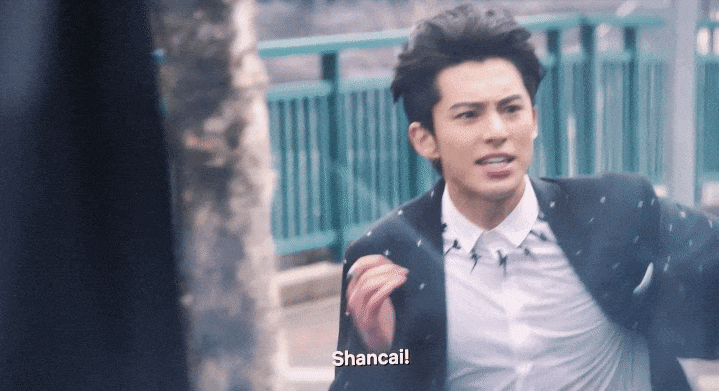


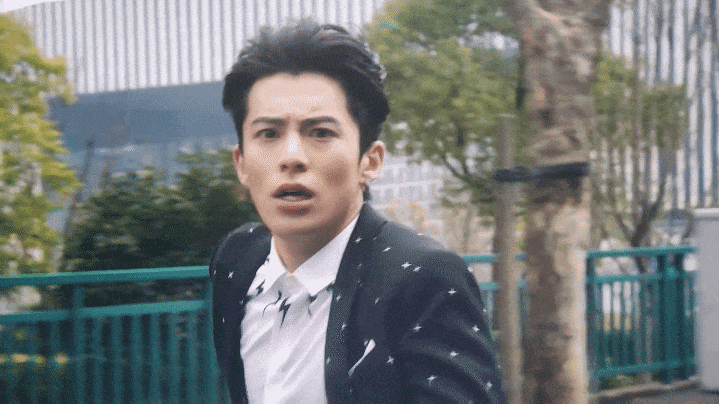



MADE IN CHINA
SHEN YUE
DYLAN WANG
DARREN CHEN
#MADE IN CHINA#METEOR GARDEN#2018#CHINESE ADAPTATION#BOYS OVER FLOWERS/HANA YORI DANGO UNIVERSE#DAOMING SI#DONG SHANCAI#HAUZE LEI#CHINESE ACTOR#CHINESE ACTRESS#TAIWANESE ACTOR#My NON BL WATCHLIST BLOG#My GIFS#MYGIFSET#MY-GIF-EDIT#HAUZE TRIES TO KEEP SI AND SHANCAI APART
12 notes
·
View notes
Text
Lost Tomb Adaptations in Order
In my last post about Lost Tomb (Here) I talked about what it is, and I told people that you can really start wherever, but I didn't put all the options, let's go through what adaptations I have heard of and where they lie in the timeline.
Main Series (Based on main book series with Wu Xie, Zhang Qiling, Wang Pangzi, Hei Xiazi, and Xie Yuchen)
Lost Tomb (2015)- Based on the first book in the series: Cavern of Blood Zombies

Time Raiders (2016)- Also based on the first novel

Lost Tomb 2 (2019)- Based on books 2, 3, and the beginning of 4: Angry Sea Hidden Sands, Bronze Tree of Death, and Palace of Doom

Lost Tomb 2: Explore with the Note (2021) - Based on the rest of book 4

Ultimate Note (2020)- Based on books 5, 6, and 7: Deadly Desert Winds, Graveyard of a Queen and Ancient Building Under the Dark Mountains, and Stone Shadow in Qiong Cave

Sequel Series (Set after the main series, same main characters, continuing the story)
Adventure Behind the Bronze Door (2024)- Based on the first sequel novel, Tibetan Sea Flower

Tomb of the Sea (2018)- Based on the second sequel novel, Sand Sea

Tomb of the Sea Side Movies- No book reference that I know of
1 Bang Ren (2018)

2 Hua Mei (2018)

3 Ran Gu (2018)

Reunion: Sound of Providence (2020) Season 1 and 2- Based on the fourth sequel novel, Restart

Reunion Side Movies - No Book Reference
1 Ping Yao Wang Shi (2020)

2 Echo of Moonfall (2021)

Conjuring Curse (2023)- No direct book reference, but definitely a sequel

Misty Creed (2023)- A Sequel after Conjuring Curse

Reunion 2: Mystery of the Abyss (2023)- Not direct book relation that I know of, but same time as restart

Reunion 2: Hua Ye Qian Xing (Not yet released)- Adapted from Spin off Novel: Moving through the Flowery night, the End Comes Without a Sound

Prequel Series (Doesn't have many characters from the main or sequel series, set from ancient China to the republican era, but has some of our characters' ancestors and backstory pieces)
Legend of Zang Hai (2025)- Not Based on a specific book that I know of, earliest in the timeline

Qing Shan Hai Tang (2022)- Prequel to Mystic Nine, not based on a specific novel

Mystic Nine (2016)- Based on first The Mystic Nine prequel novel

Mystic Nine Side Movies- Not based directly on novel
1 Ganges Killing the Trees (2016)

2 Four Belongs to Abel Moschus (2016)

3 Tiger Bones Plum Blossom (2016)

4 Flowers Bloom in February (2016)

The Treasured Bajia Book (Not Released)- Mystic Nine sequel

The South Bureau (Coming soon)- Based on the Spin off Novel: Southern Archives

20 notes
·
View notes
Text
As Donald Trump took the presidential oath for a second time, he was surrounded by some of the world’s richest men. But even a famously materialistic president couldn’t outdo the Chinese Communist Party (CCP) when it comes to collecting billionaire support. In March 2018, more than 100 billionaires gathered in Beijing to serve in the Chinese government. Pony Ma, the CEO of web giant Tencent and then China’s richest man, sat alongside Evergrande chairman Hui Ka Yan and 40-plus other members of the ultra-rich in the National People’s Congress (NPC), China’s parliament.
Ma’s wealth, at $47 billion, put him just ahead of Hui, worth $41 billion, as China’s richest man. Another 59 billionaires joined the Chinese People’s Political Consultative Conference (CPPCC), the party’s highest advisory body. The net worth of the NPC and CPPCC combined was estimated at more than $620 billion.
But as the “two sessions”—the annual meetings of the NPC and CPPCC—met in Beijing, their actual work was to rubber-stamp Xi Jinping’s abolition of presidential term limits, allowing him to hold power indefinitely. Neither body has any actual power. Giving billionaires a place in the legislature was not a reward or a sign of their strength; it was a way to bind them to the party and for them to publicly show their allegiance.
In much of the world, the defining characteristic of billionaires is impunity: the ability to ignore laws, social norms, or borders through the sheer force of wealth. U.S. billionaires do all they can to evade their responsibilities to the state—or to actively subvert the government for their own ends. Capital, and the laws protecting capital, shields and fortifies them. It’s usually only when their wealth itself turns out to be fraudulent, as with FTX founder Sam Bankman-Fried, that they face jail time.
In China, however, every billionaire’s fortune is built upon a thin foundation: the goodwill of the CCP. At every turn, the ultra-rich, especially since Xi took power, are reminded that their wealth exists at the sufferance of the party—and that it could all be taken away. Careful not to draw attention to themselves or seem to challenge the party’s right to “lead everything,” billionaires’ position in China is inherently precarious.
Even after the abandonment of Maoism, the CCP has never been entirely comfortable with the wealthy. In the 1980s, Chinese leader Deng Xiaoping stated that it was fine for “a few” households and regions to “get rich first,” but he said it about peasants, not billionaires, and added that the rich had an obligation to lift up the poor. The party’s reluctant embrace of private business came with many caveats.
Culturally, though, China embraced wealth from the 1980s on with the eagerness of a starving man falling on a banquet. The phrase “to get rich is glorious,” often falsely attributed to Deng, was popularized in Western coverage by Sinologist Orville Schell. Still, it accurately captured a mood that lasted for decades. After two generations of deprivation and revolutionary austerity, the coming of money, and all the possibilities of money, seemed miraculous.
The party adapted. It wasn’t until the late 1990s that the first mainland Chinese billionaires emerged—and they had a golden sheen about them, even for the government. A newly powerful country was flexing its financial muscles, and billionaires matched that image. The wealthy were celebrated in magazines, self-help books, and TV specials, especially since the roughly leveled playing field meant that they had made their own fortunes, going from restaurant owners to real estate magnates—or in one case from laundress to international trader. “Entrepreneurs” was a favorite term for the successful, without the tinge of negativity given to other terms for wealth from the Maoist era.
In 2002, the CCP reversed its previous policy of shutting out entrepreneurs, who were previously seen as politically suspect. This didn’t lead to businesspeople flocking to the party but instead saw party members flowing into business, where their existing connections proved a serious advantage. Even as private initiative was celebrated, it depended on government backing.
That dynamic was most visible in the real estate sector, which more than tripled its share of national GDP in the 2000s. Local governments needed to sell land in order to meet their financial obligations, and the well-connected could buy it cheap—or shut competitors out altogether, legally or otherwise. (A friend’s uncle bid against connected businessmen in Shandong in 2006; he was kidnapped, had his legs severed, and was left to bleed to death on top of one of his own construction sites.) The loans they needed to buy government land often came in turn from government-run banks, in a cycle of mutual profit. Officials welcomed GDP growth for their careers and bribes for themselves.
Other entrepreneurs found smarter methods of leveraging the needs of local government. In his book China in Ten Words, writer Yu Hua tells the story of one businessman who would “bamboozle himself a reputation as a nationally known entrepreneur.” The businessman went to Beijing to bid on the advertising slots before the much-watched 7 p.m. news broadcast, and after spending an astronomical sum of 80 million yuan, he was hailed as the “Bidding King” by media, winning him and his firm even more free publicity. He then returned to his hometown and called a meeting with local government officials. “My own assets are just a tiny fraction of [80 million],” he told them. “If you back me up, then our city will have produced an entrepreneur famous throughout the nation. If you let me down, then our city will have produced the biggest trickster in the whole country.” Faced with this choice, the city’s leaders ordered the local commercial bank to lend him 200 million yuan.
Yu leaves the businessman unnamed and the story unverified. One candidate for the tale is Jack Ma, the creator of e-commerce giant Alibaba, who shares his hometown of Hangzhou with Yu. Ma emerged as one of the most charming, and nationally celebrated, businessmen of the 2000s, known for his impish grin and patriotic enthusiasm for defeating foreign interlopers such as eBay. By the end of 2018, he was China’s richest man, worth some $39 billion. (China’s billionaires have never cracked the $70 billion mark, which leaves them consistently outside the world’s top 20 richest people.)
Ma was just one of a pantheon of billionaires celebrated as role models by parents and the party alike. In May 2013, two months after Xi took office as president, the second-highest-grossing movie in China was a tale of three future billionaires. American Dreams in China was a thinly veiled retelling of the rise of New Oriental, an English-language education company that became an omnipresent giant in the 2000s, specializing in preparing students to study abroad. Its three heroes, presented as plucky go-getters, were based on New Oriental’s founder, Yu Minhong, whose wealth had just topped the $1 billion mark, and his two venture capital backers.
Yet unlike the legal firewalls and political pull enjoyed by U.S. billionaires, none of this success came with security. The newly wealthy were caught in a bind; their wealth let them buy off local officials, and eventually eclipse them, but as their fame grew, they attracted the attention of higher-ranking officials who demanded their own share of the pie.
Their time was inevitably spent—as anthropologist John Osburg detailed in his 2013 book, Anxious Wealth—maintaining intricate networks of influence, profit, and corruption. It was impossible to rise cleanly: Even if your original business was honest, protecting it required not just bribery but participation in networks of mutual vice. Self-compromise made you trustworthy to others.
And while the CCP was willing to tolerate, and even praise, the fresh crop of billionaires, the authorities also regularly harvested them. Which billionaires fell was a matter of arrogance and chance: The most obviously criminal tended to be culled, such as the murderous Liu Han, executed in 2015, or early fugitive Lai Changxing, but sometimes it was simply having picked the wrong political patron. Each fall acted as a reminder to others to stay in line and also let officials divvy up the assets of the fallen.
The Hurun Rich List, a ranking of the ultra-wealthy put together by British analyst Rupert Hoogewerf since 1999, became known as the “fattened pig list,” with the joke being that so many of its most prominent members were then picked for slaughter by the party. Three researchers in 2012 found that being on the list increased your likelihood of being charged, investigated, or arrested from 7 percent to 17 percent. Others found that just appearing on the list increased the cost of auditors, who perceived it as creating heightened risk. (Hoogewerf disputes this, saying that only 1 percent of those on the list have fallen.)
Political risk has sharply increased under Xi. To the public, he promised a crackdown on the corruption and excess of the 2000s. To his fellow party leaders and elders, he promised a reassertion of the centrality of party power. At first, this manifested mostly as demands for public obeisance to the party. Groveling apologies and vows to follow the party, such as that given in 2018 by ByteDance founder Zhang Yiming over “vulgar” content on one of its apps, became common. But the creation of wealth went on regardless. By 2021, the number of billionaires had peaked at 1,185.
The COVID-19 pandemic, and the three years of lockdowns and controls that followed, made business in China even more dependent on government goodwill. Xi took the pandemic as an opportunity to crush entire business sectors he saw as having grown uncomfortably large or socially threatening. A 32-month crackdown on tech, tightening data regulations and censorship demands and blocking initial public offerings and foreign deals, wiped trillions of dollars off stock market prices. Ma disappeared into years of mandated exile from public appearances after he voiced mild criticism of regulators. Much of the private education sector was made illegal, crashing the value of New Oriental’s stock from $195 to barely over $20 in the course of five months. The number of billionaires fell 36 percent in three years.
Yet the biggest casualty of the pandemic was the one sector the government never intended to touch: real estate. A yearslong collapse has smashed the real estate tycoons who were once mainstays of the Hurun list. Evergrande’s Hui saw his wealth fall under $1 billion in 2023, followed by his detention. The loss of a sector that had come to represent more than a quarter of GDP contributed to an economic crisis that has unnerved the CCP.
That produced the February meeting between Xi and CEOs where he reassured them that the party was ready to offer the private sector new support—but also reinforced his own centrality, with CEOs arranged around him to pay due homage. The billionaires were there to show Xi’s strategic priorities, not their own, with manufacturing and agriculture at the center; Jack Ma was back but pushed to the end of the table.
In an era of unchecked billionaire power in the West, it might be tempting to think China has found a better way. But the tools of party power used against the ultra-wealthy are employed more frequently and more cruelly against the poor and powerless, whether Uyghur families, street vendors, small businesses, or feminist activists.
And one class of the ultra-wealthy remains genuinely untouchable: the family members of party leaders. Xi’s family assets are enormous and also unreportable by any Chinese media. When Bloomberg began reporting on it in 2012, Bloomberg as a firm was threatened with total expulsion from China and acquiesced to official demands to self-censor.
Former Chinese Premier Wen Jiabao’s wife, Zhang Peili, took over the country’s diamond trade while her husband was in office from 2003 to 2013 and accumulated at least $2.7 billion in assets through various business dealings. Those around them might be targeted, such as Zhang’s advisor Desmond Shum, who fled China under Xi, or real estate magnate Xiao Jianhua, who acted as a consigliere for many of Xi’s relatives and was sentenced to 13 years in prison in 2022. But the wealth of the party, like the power of the party, remains unquestioned.
6 notes
·
View notes
Text
TTEOTM Creative Team: What else did they work on?
For those who are a bit underwhelmed by the summer drama options or still dreaming about TTEOTM! 😎
Kuk Kok Leung (Lead Director)

Kuk Kok Leung is a veteran director who started his career in Hong Kong's TVB. He's been nominated for the prestigious Magnolia Award and is known for wuxia and serious, warm-blooded historical dramas (he's adapted 7 out of 8 Jinyong novels). His works include...
Legend of the Condor Heroes (1983) as Assistant Director, with Felix Wong and Barbara Yung
The Duke of Mount Deer (1984), with Tony Leung & Andy Lau
Return of the Condor Heros (1983) with Andy Lau & Idy Chan
Legend of the Condor Heroes (2002) with Li Yapeng & Zhou Xun
Demi-Gods and Semi-Devils (2003), with Hu Jun, Jimmy Lin, and Liu Yifei
Water Margin (2011), nominated for Magnolia Award
Cool Sword (2013), with Julian Cheung & Wallace Chung
The Patriot Fei Yue (2013), with Huang Xiaoming & Ruby Lin
The Stand-In (2014), with Wallace Chung
The General and I (2016), with Wallace Chung and Angelababy
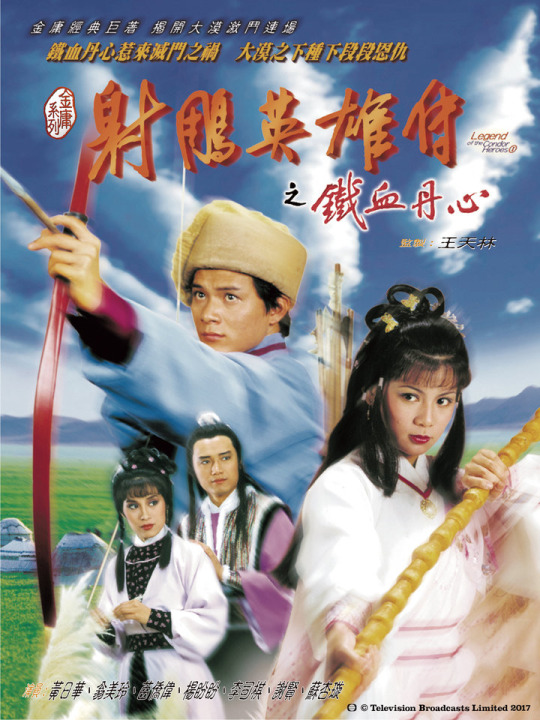


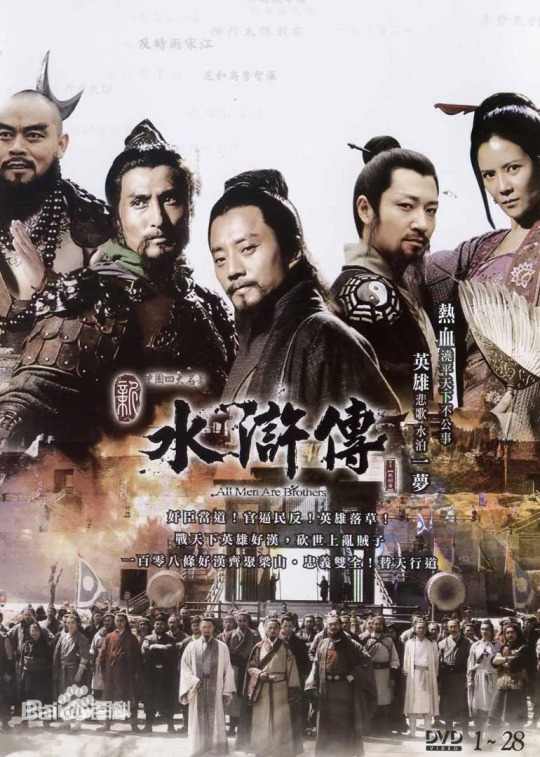
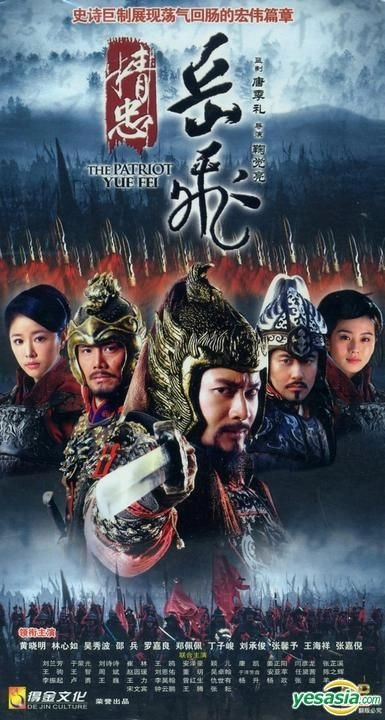
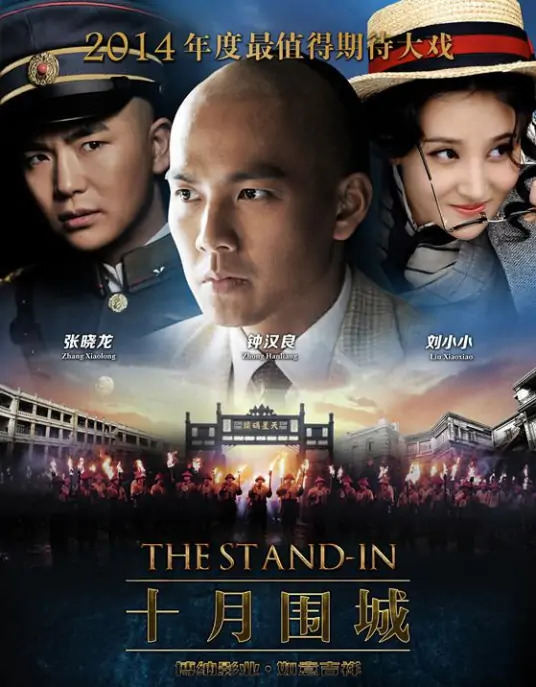
He's also a frequent collaborator and producer on Johnny To films, including Election, Election 2, Mad Detective.
So you get the picture. He makes TV for men who are ready to bleed for their country. This all makes him a really interesting choice for TTEOTM (and tells you a bit about the ambition and creative vision of the producers), especially since all his more recent idol dramas were widely panned.
Wang Haiqi, Director & Action Director
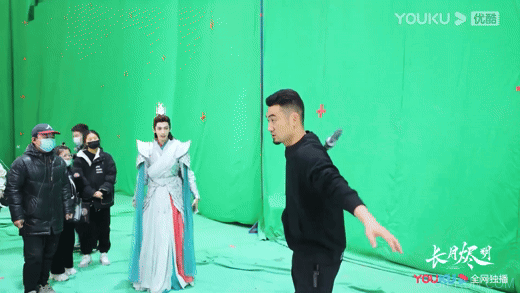
We don't know too much about Wang Haiqi because TTEOTM is actually his directorial debut. He started his career in stunts and has worked as the action coordinator on Ashes of Love (2018) and Immortality (unreleased) alongside Luo Yunxi. He was also a stunts man/double in a bunch of Hollywood films, including Mulan (2020) and the Foreigner (2017) through the Jacky Chan stunts team.

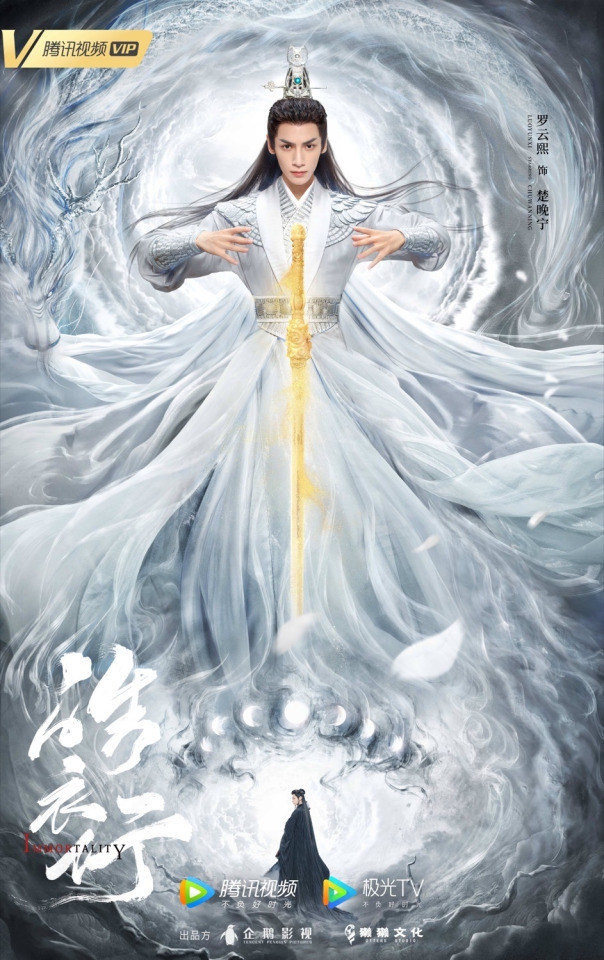
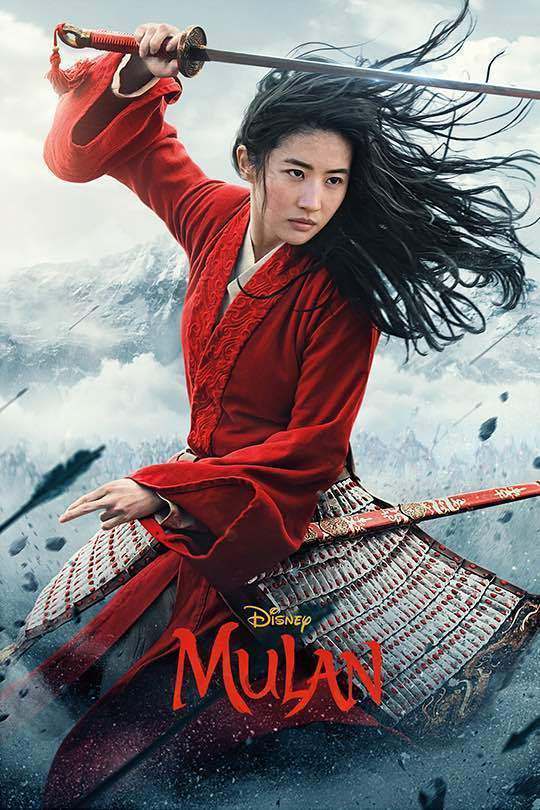

He's responsible for most of the action/battle scenes in TTEOTM, and his experience working on films probably explains why the fight sequences are unusually cinematic for TV.
Luan Hexin, Art Director
Luan Hexin is a Magnolia Award nominated art director best known for Huanyu productions, including Story of Yanxi Palace, Winter Begonia, and Royal Feast. He's a serious art guy, as you can tell from this interview.
(Note: Huanyu is Bai Lu's management company. There is a rumor that Luan Hexin is part of Bai Lu's "dowry", but the parties have since clarified that Luan was brought in after she was cast.)
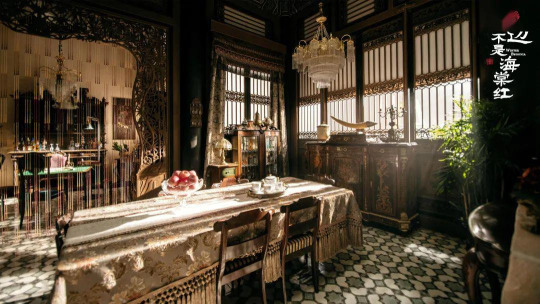
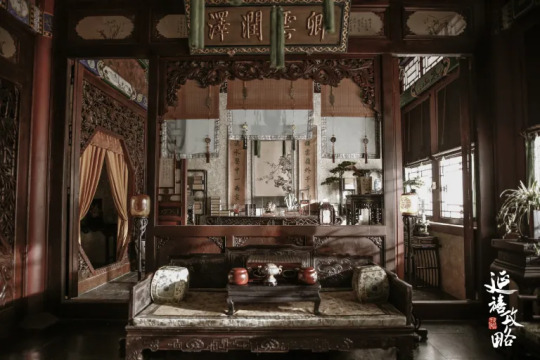
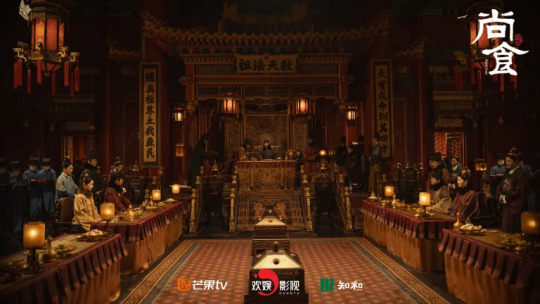
He's also an interesting choice, having never worked on costume fantasies before and better known for his authentic representation of the look and feel of bygone eras.
Huang Wei, Costume Designer
Huang Wei is one of the most sought-after costume designers working today, especially for xianxias. She started her career as a Vogue China editor and was in fact the person responsible for TTEOTM's Dunhuang-inspired aesthetics.
Her better known works include A Dream of Splendor (2022), One and Only (2020), Love O2O (2015), Back from the Brink (2023) as well as a bunch of highly anticipated dramas like Immortality and The Last Immortal. (The joke on Chinese internet is that there is an "expensive" vs. "cheap" version of Huang Wei costumes - her design can be much simpler on lower-budget productions.)


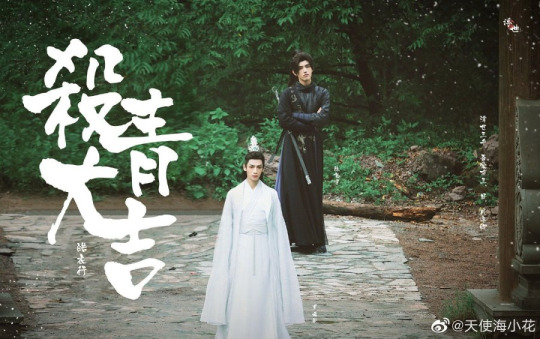
I'd like to think that after designing 40 mostly white costumes for Luo Yunxi in Immortality, she decided to go nuts on color with Tantai Jin.
Tsang Ming Fai, Makeup Designer
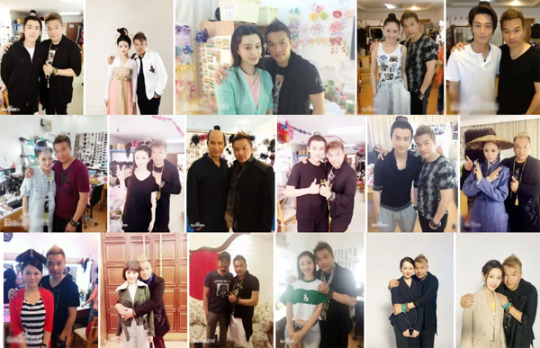
Tsang Ming Fai is a big name in the xianxia circuit. He and his team of “students" have worked on a large number of costume dramas, including Ashes of Love (2018), Love & Redemption (2020), Under the Power (2019), Noble Aspirations (2016), Sword of Legends (2014), as well as the... wait for it... unreleased Immortality and Luo Yunxi's currently filming drama Follow Your Heart.
He's sadly been receiving a lot of hate in fan circles over the heavy makeup in TTEOTM (which may or may not have been his call). What I do appreciate is his ability to help actors craft distinct characters with varied hair and makeup choices. For example you can distinguish between different Luo Yunxi characters and their personalities with Runyu's clean cut tie-back half ponytail (ethereal & straight laced), Tantai Jin's slightly brown hair, messy bangs and heavy eye shadow (dark & sickly), Chu Wanning's angular eyebrows and geometric hair puff (strict & proud).

He also excels at creating unusual, iconic looks even for side characters, e.g. Chen Yao's dark lipstick paired with gothic jewelry in Immortality and Chen Duling's retro updo in TTEOTM.
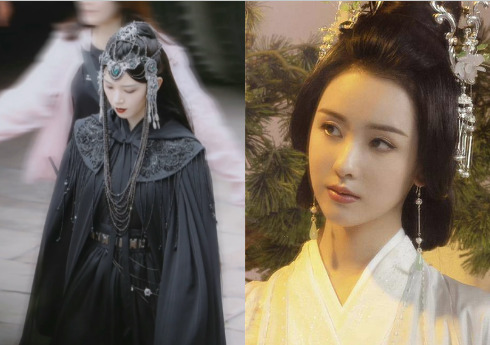
#till the end of the moon#black moonlight holds the be script#luo yunxi#cdrama#chang yue jin ming#chinese drama#tteotm#bai lu#tantai jin#ye xiwu#huanyu#yanxi palace#ashes of love#immortality#2ha#winter begonia
87 notes
·
View notes
Text
The Lost Tomb 2: Explore With the Note (2021) - 云顶天宫 - Whump List
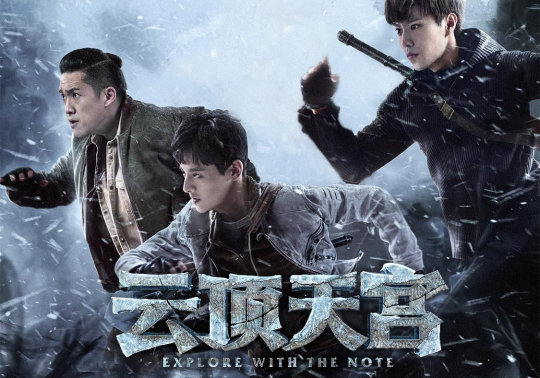
List by StayDandy Synopsis : The iron triangle: Wu Xie, Zhang Qi Ling and Wang Pang Zi find themselves on a train headed for the mountainous Korean border in search of a mysterious, mythical palace in a world of glaciers, avalanches, and blizzards. They have no idea why Wu San Sheng has sent the message that brought them all together again, but they soon discover that they are not alone in their search for the peak that holds the palace. As they move deeper within the maze of mountain tunnels, all of them begin to wonder if this adventure will be their final quest. (MDL) AKA : The Lost Tomb 2: Heavenly Palace on the Clouds
Whumpees : Wu Xie played by Bai Shu (center) • Zhang Qi Ling played by Zhao Dong Ze (right) • Wang Pang Zi played by Zhang Bo Yu (left)
Country : 🇨🇳 China Genres : Action, Adventure, Mystery, Supernatural, Bromance
Notes : This is a Full Whump List • Adapted from book 4 of "The Grave Robbers' Chronicles" (盗墓笔记) by Kennedy Xu (南派三叔) • I think this is my least favorite Wu Xie actor, but I love the actor who plays Pang Zi (it's the same one as in Wrath of the Sea) • Favorite episode is pink • Suggested watch order of series (not including movies & spin-offs) : – 1. Mystic Nine (2016) – 2. The Lost Tomb (2015) – 3. The Lost Tomb 2: Wrath of the Sea (2019) >> 4. The Lost Tomb 2: Explore with the Note (2021) – 5. The Lost Tomb 3: Ultimate Note (2020) – 6. Adventure Behind the Bronze Door (2024) – 7. Tomb of the Sea (2018) – 8. Reunion: Sound of the Providence (2020) – 9. Reunion: Sound of the Providence 2 (2020)
Related Lists : The Lost Tomb (2015) - Full List • The Lost Tomb 2: Wrath of the Sea (2019) - Full List • The Lost Tomb 3: Ultimate Note (2020) - Full List • Adventure Behind the Bronze Door (2024) - Full List
Episodes on List : 17 Total Episodes : 24
*Spoilers below*
01 : [flashback] Wu Xie trapped in collapsed tomb rubble … [present] hospitalized, conscious but unresponsive, [flashback] trapped in the rubble.. [present] wandering around barefoot, unsteady, dizzy, in & out of consciousness … attacked, cloth over mouth, injected with something; pain, seizure, dropped out of car unconscious … nightmare … rolls down a hill, hits a tree … ensnared in a trap, thrown around & tied up.. Wang Pang Zi tied up & dragged in the same trap … bit by a snake
02 : Face swollen from bee stings … scratched by a poisoned arrow, passes out … cared for, fever
04 : Wu Xie dizzy, unsteady … Wu Xie, Zhang Qi Ling, & Pang Zi exhausted … Wu Xie & Pang Zi knocked out with gas
05 : (at end) Wu Xie & Pang Zi almost fall into a ravine
06 : … continued from previous ep. ... Wu Xie & Pang Zi almost fall into a ravine
08 : Wu Xie exhausted, unsteady … collapses, suffering from hypoxia (low oxygen), passes out.. hallucinating.. dragged down a hill
11 : Falls off a cliff, caught by the safety line
14 : Kicked, hit his head, knocked out … Pang Zi hallucinating … Wu Xie in a daze, unresponsive … (@ 26:30-28:57, 38:43-40:45 gross many-legged bugs, including a giant one .. I srsly had to skip most of this .. I can't with these things) … shock
15 : Pang Zi grabbed by a nasty giant bug … (at end) Wu Xie choked
16 : … continued from previous ep. ... Choked
17 : Qi Ling not feeling well.. cuts his own fingers
18 : Wu Xie grabbed by a monster (thankfully not another bug) & dropped from a great height … (@ 5:14-6:50 more fucking bugs) … wakes, hurt from the fall … passed out/sleeping, wakes coughing, dehydrated, passes out again.. wakes coughing again, chest pain, helped to walk … weaker, blurry vision … wakes from sleep with pain … rib pain, coughing.. Pang Zi sore from being dropped from a great height … Wu Xie has nightmare, pain
19 : (@ 8:23-8:51 gross bug stuff) … Coughing, rib pain … pukes
20 : (near end) Bit
21 : Panic, hyperventilating … attacked … (@ 31:23-32:40, 33:59-35:32 bugs!) falls off a platform, spits up blood.. cared for, chest pain
22 : Coughing, pain
24 : (big bug demon thing) … Held hostage, gun to his head.. Pang Zi tied up
More Whump Lists for this show: love-me-a-lotta-whump
#whump#whump list#full whump list#Asian whump#China#Lost Tomb 2 Explore With the Note#Lost Tomb 2#Explore With the Note#云顶天宫#Heavenly Palace on the Clouds#Wu Xie#Zhang Qi Ling#Wang Pang Zi#Bai Shu#Zhao Dong Ze#Zhang Bo Yu
27 notes
·
View notes
Text
Mad Monk Ji Gong (2030) 济公之人皇鼎







Director: Liu Jiajing Starring: Joe Cheng / Tong Fei / Kata / Du Haitao / Yao Yuan / Liu Jikai Genre: Comedy / Costume Country/Region of Production: Mainland China Language: Mandarin Chinese Date: 2030 (tbtc) Also known as: Jigong / 济公 Adaption: Cameo
Summary:
The story tells the story of the monk Dao Ji who cultivates fate, punishes evil and promotes good to save the three realms. Can Dao Ji turn danger into safety and wake up to harvest his own love in times of crisis? This "heroic" journey is both hilarious and heartwarming, touching and romantic. The film also adds many popular cultural elements, and the film has more universal values besides being funny.
Source: https://mov-10.chinesemov.com/2018/Mad-Monk-Ji-Gong
#Mad Monk Ji Gong#济公之人皇鼎#Jigong#济公#jttw media#jttw movie#movie#live action#cameo#sun wukong#tang sanzang#zhu bajie#sha wujing
5 notes
·
View notes
Note
A different anon but as someone deeply fascinated by Esteban Ocon and the redbull musical chairs here are some extra notes:
Estie bestie is currently at Alpine formerly Renault since 2020. And back in 2018 (ie when he was in Racing Point) there were rumors linking him to the Renault seat Daniel would take in 2019 so that’s possibly why his and Lances friendship survived
Unrelated but Alpine/Renault is currently the Frenchest team to ever French. It is (or at least was) partly owned by the French government through their stake in Renault (Alpine got renamed cause Alpine is the sports car brand of Renault. Not that they make any sports cars I believe they made maybe one in 2017). The current two Alpine drivers are the aforementioned Estie bestie and Pierre Gasly (both French. Also childhood friends to enemies to they have to tolerate each other now) and while their current reserve driver is an Australian, he will hopefully for his own good take a page out of his countryman’s Oscar Piastris book and hightail it out of there for his own good. The most likely replacement for him would be Victor Martins. Also French. The Alpine factories are in Enstone (UK) and Viry (France) so that’s the least French part of that team
Now back to our regularly scheduled programming of rbr 2nd seat:
So rbr started by buying the Jaguar team in mid 2000s after afaik getting fed up by Sauber who they used to sponsor. Also at that time Sauber was sponsored by Petronas, Mercedes’ current title sponsor. Fun fact
The two drivers that they started with was David Coulthard who no one cares about in this story and Mark Webber, Australian, first victim of rbr 2nd seat shenanigans
At some point (for the 2009 season I think?) Seb Vettel, German, certifiable little shit at that time, replaces Coulthard
Insert a highlight reel of Seb Vettels warcrimes between ~2010 - 2013, which culminate in Multi-21 Mark Webber retiring after the 2013 season. He gets replaced by Toro Rosso driver/Red Bull junior Daniel Ricciardo, Australian, happy go lucky guy and our next victim in a couple of years
2014 brings new regs for the cars and Red Bull struggles to adapt. For context Seb went from a 9 win streak at the end of 2013 to no podiums in 2014. Yeah. So he runs away to Ferrari for 2015 to become a victim of Italian incompetence instead
He gets replaced by Daniil Kvyat, Russian, the most forgettable man in this story. Also he is pretty new into F1, it’s his second or third year there
2015 is sorta meh for rbr but the two Daniels are sorta even. And then 2016 happens
Here’s the thing; Daniil decides to play bumper cars in Russia and China right off the bat at the beginning of the season, one of the victims being former rbr golden child Seb. Now there’s more lore that I don’t remember but it culminates in him being replaced for Spain 2016 by Max Verstappen, Dutch, aged like 18 at that time
Max goes on to win his first race with Red Bull because Mercedes (the best team on the grid) is in the throes of a civil war and their drivers take each other out. There could be novels written about those two drivers btw
The next two and half years are a slow process of the garage slowly going from preferring Danny Ric to preferring Max. Highlights include Baku 2018 and then Dans redemption win in Monaco the same year. There could be novels about this as well but we culminate in Dan leaving for Renault
And then we get to the real musical chairs. He gets replaced by Pierre Gasly, French, third victim of rbr 2nd seat
He has a shite start to the season and ends up getting replaced by Alex Albon, Thai, a rookie that year, midway through the season after Christian Horner, Mr Ginger spice, swore up and down he won’t
Intermission: Toro Rosso liked playing musical chairs as well and Pierre Gasly only got an F1 seat at the last few races for 2017, Alex got told he’s racing in 2019 (his first season) days before preseason testing. With no experience in an F1 car. And there’s a world of difference between a shit car (Toro Rosso) and a good car (Red Bull). Yeah they were ultimately victims of rbrs shitty management, especially Alex since he does wonders in a Williams now
Rbr decides to drop Alex after 2020. Except they usually promote Toro Rosso drivers and the two Toro Rosso drivers right now? Pierre Gasly and Daniil Kvyat. Yeah
So they end up hiring Sergio ‘Checo’ Pérez, Mexican, who knows if he will be racing next year. Idk if he got an extension or if they hired him for four years, either way his contract is supposed to last until end of 2024 season but right now how Mr Ginger spice is acting… yeah
Also, Daniel just came back to rbr as a driver for Alpha Tauri (former Toro Rosso) after a mid season swap that was widely regarded as shittily done so there are very little contract issues that would stop Red Bull from hiring him, a marketing departments golden boy, a good friend of Max, as the second driver to maybe finally have a good team
(Red Bull has never ended 1-2 in drivers standings. Checo is currently second but Sir Lewis Hamilton can do wonders sometimes)
So to reiterate the seat movements:
It’s Webber -> Ricciardo -> Gasly -> Albon -> Perez in that metaphorical seat which when rb had a clear first and second drivers it was usually second drivers seat
And (Coulthard ->) Vettel -> Kvyat -> Verstappen for that other seat. The one that if rb had a clear first and second drivers was usually first (Vettel, Verstappen after ~2018)
Bonus fun fact about Liam Lawson, one of the threats for Checos seat:
He is born in 2002. He’s younger than Fernando Alonso’s career by several months, upwards to a year
He is the guy that knocked Verstappen out of quali in Q2 in Singapore and consequently broke the several year long streak of at least one car always in Q3 that Red Bull has been holding
There is always a debate if he has a guaranteed seat from rbr or not at some point. There were rumors of a guaranteed for 2025 a while ago but who knows…
Sorry for rambling so much I have thoughts haha
forgot i’ve been sitting on this ask for a month lol but yes. red bull second seat drama is indeed fascinating. and now there is aparently another rumor that arthur leclerc might come up to f1 through racing bulls (alpha tauri) which would disrupt the process again.
#i love watching the red bull team in shock horror#i don’t always like them but they provide good entertainment#not a tag#from saph#f1
31 notes
·
View notes